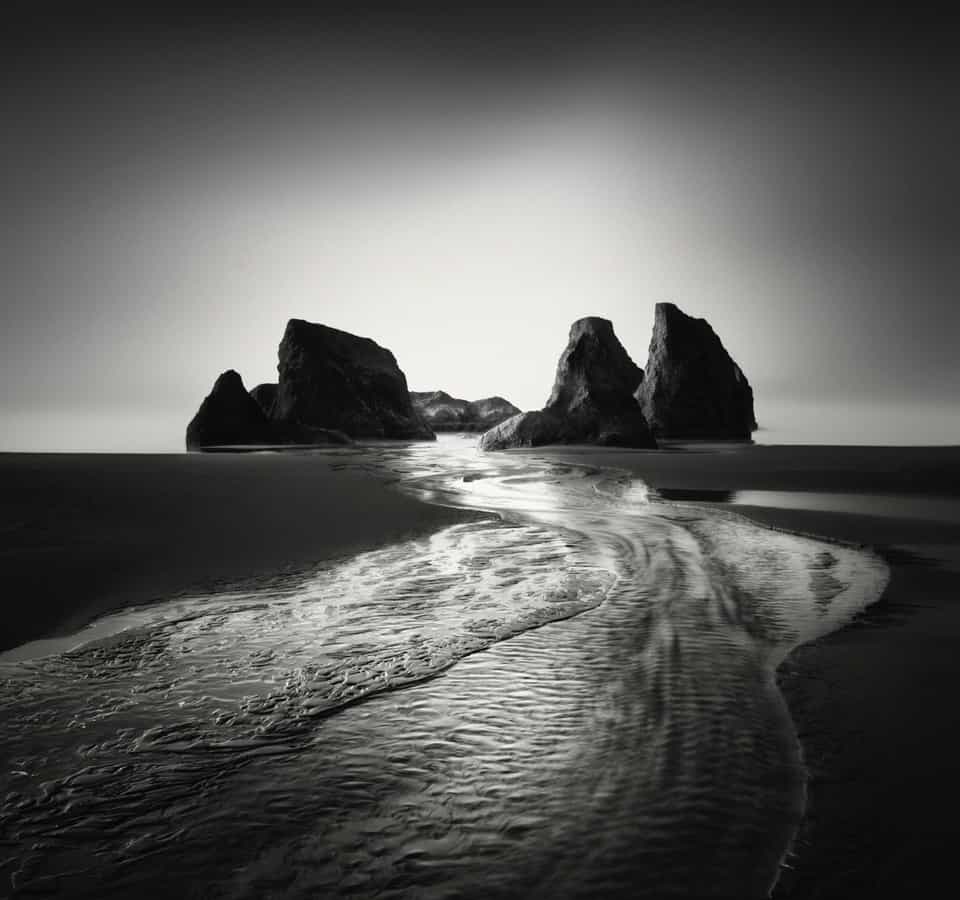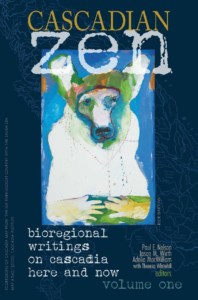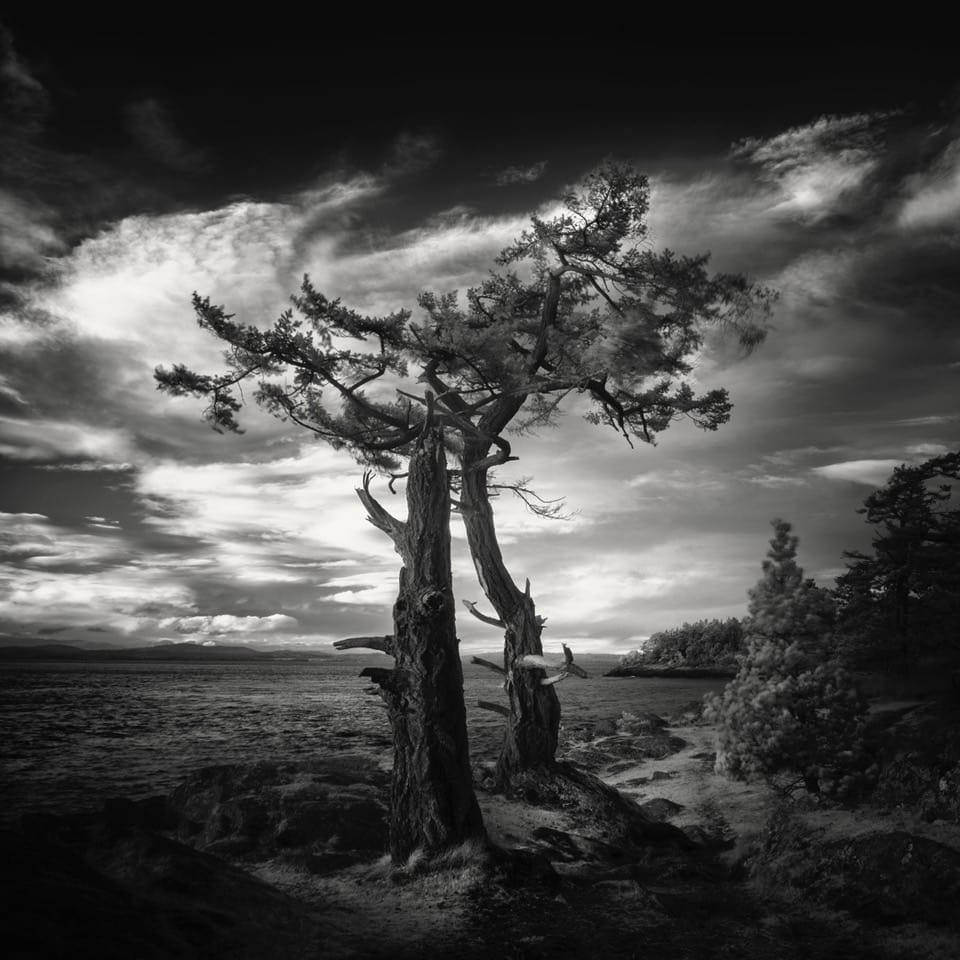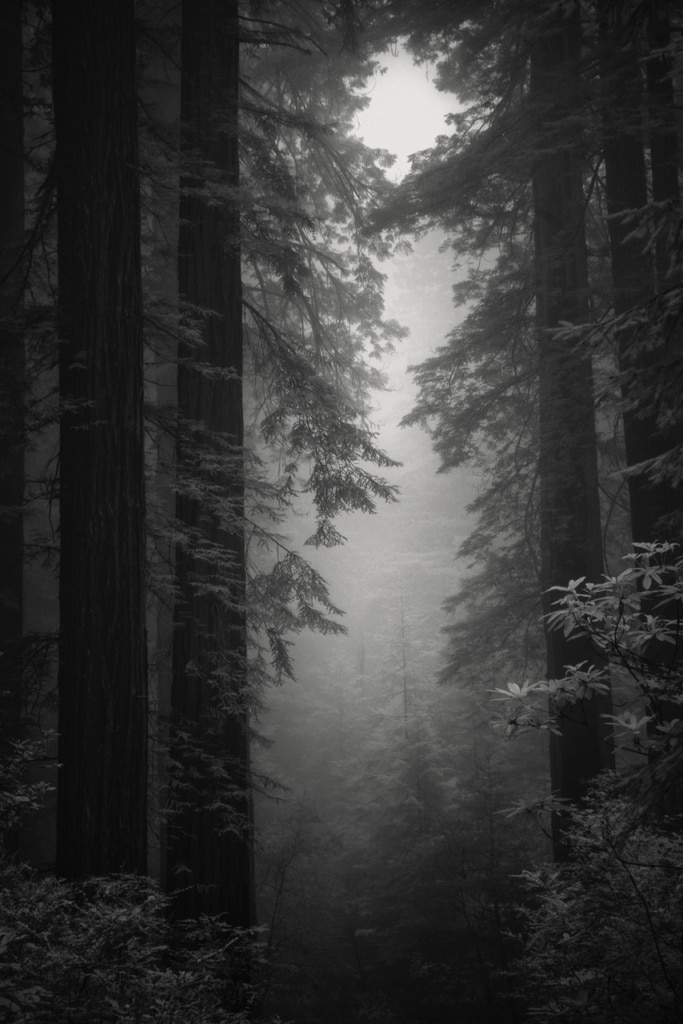
What is Cascadian Zen?
Essay by Adelia MacWilliam and Jason Wirth

In 2023 Paul Nelson, Jason Tetsuzen Wirth and Adelia MacWilliam founded Watershed Press to support our first publications, Cascadian Zen, Volumes One and Two, respectively. They are carefully curated collections of poetry, essays, interviews, as well as art and photography from the bioregion of Cascadia. Our mandate is to foster compelling work by a wide range of voices allied deeply with place and sustainable and Indigenous approaches to navigating the ecological and political harm of the Anthropocene in the bioregion of Cascadia.
In calling these volumes Cascadian Zen, we are not implying that all the authors and artists have a commitment to Zen practice, or Buddhist practice more broadly, or even to what remains vital in many of the world’s other practice lineages. Although many of the authors have, for want of a better phrase, serious spiritual practices (Buddhist and non-Buddhist), what unites these otherwise varied voices is a practice commitment to awakening and cultivating the mind of this place, to the Cascadian heart-mind out of which language presences and gives voice to the many valences of this place.

It is, as far as poet and Sanskrit translator Andrew Schelling can tell, the first collection of poetry drawn from a bioregion. Andrew kindly wrote the introduction for us in which he contemplates the two words that Paul and Jason chose as the title of the Volume. To quote his words at length:
“It seems no accident that so much early thinking about bioregion took shape in Cascadia. The name refers to the omnipresent tumbling waters. But Cascadia has a unique culture heritage too. It sits at the meeting ground of three geo-cultural domains, each with its totems. There is the North American landmass of bison, wolf, coyote, and beaver. This meets the Pacific Rim curving along East Asia and down to Chile, with seal, otter, salmon, shellfish. Finally, the Pacific Ocean with dogfish, swordfish, and whale that migrate the subaqueous roads. Totems from these three realms meet in local Native art. Cascadia is a crossroad for people too: Continental, Arctic, and Asian-Pacific.
Maybe this mix spurred an early historical interest in bioregion. I think specifically of a handful of writers around Port Townsend who in the 1970s—watching work done in the Shasta bioregion to their south— identified the character of their landscape and founded a poetry scene with the 1976 journal Dalmo’ma, and a press they gave the Zen-inflected name Empty Bowl. Most of these poets show up in Cascadian Zen. A more famous press, arriving a bit later, Copper Canyon, is more cosmopolitan; it still carries the Cascadia wild salmon flavor, smoked with a gentler hint of Zen.

The other term, then, is Zen. What a range of meanings that word has taken! Track it back to Chinese chan, itself derived from Sanskrit dhyāna, meditation; Bodhidharma called it wall gazing. In the late 1950s bioregion-elder Gary Snyder made a poetry ideogram, offering the Sanskrit word—naturalizing it—to Cascadia. He did it with a funny little nod to Ovid.
Actaeon saw Dhyana in the Spring.
it was nothing special,
misty rain on Mt. Baker,
Neah Bay at low tide.
(Myths & Texts)
The light touch of Zen makes landfall with, ‘it was nothing special.’ Entire Zen lineages have sprung from that laconic phrase. Asked once to describe bioregionalism, Snyder said, ‘a fancy term for staying put and learning what’s going on.’ That is to say, figuring out the personality of the place you live, and living with it. Nothing special. Even if you meet up with a moon-face goddess (your own spontaneous mind) skinny-dipping in a pool. Snyder’s words set forth a kōan that fits Cascadia’s poetry. It’s a tone of high-quality cool, misty as rainfall over the Olympics. You can hear the tone recur throughout this volume.”

Photography by Nathan Wirth

